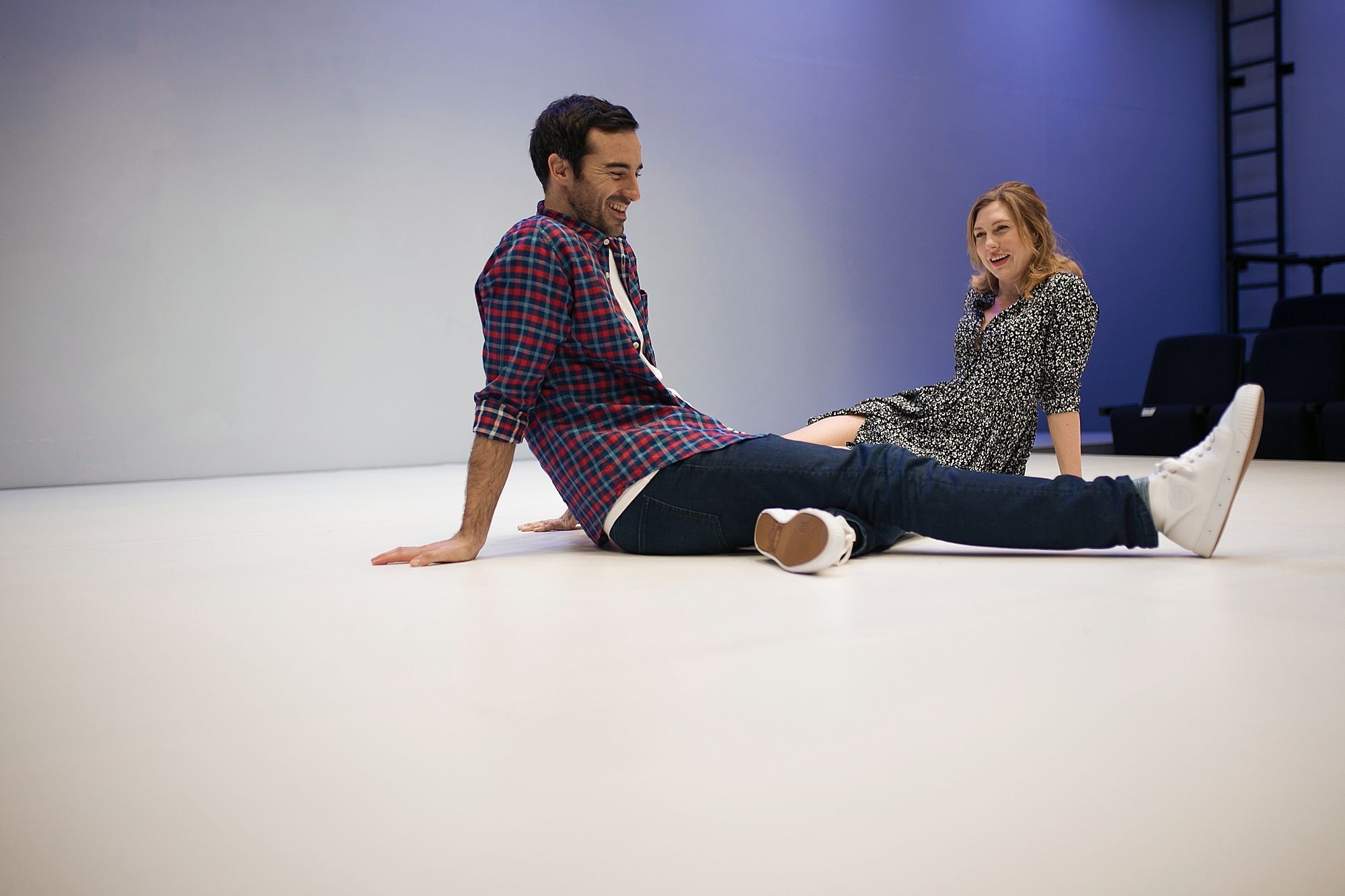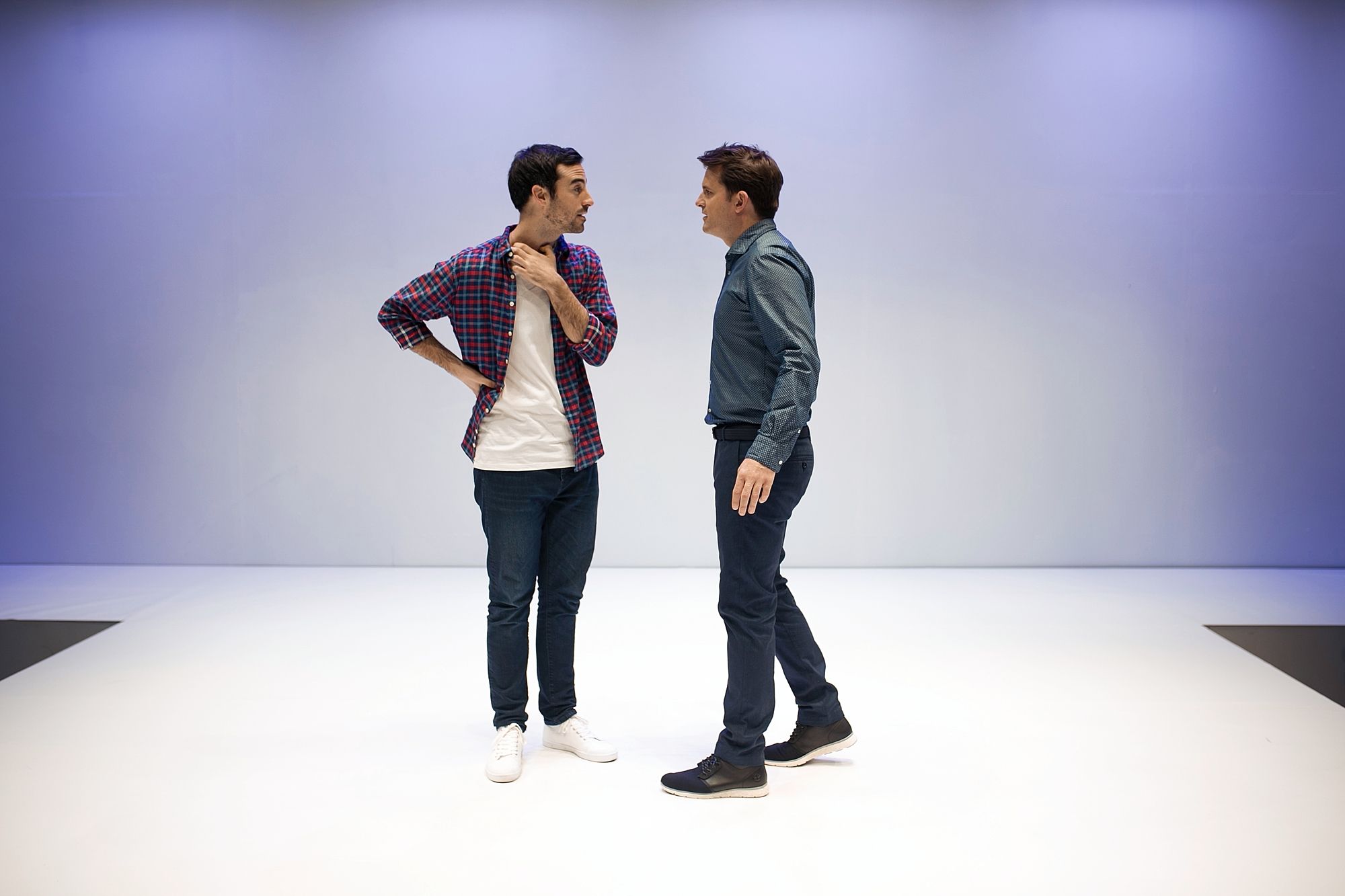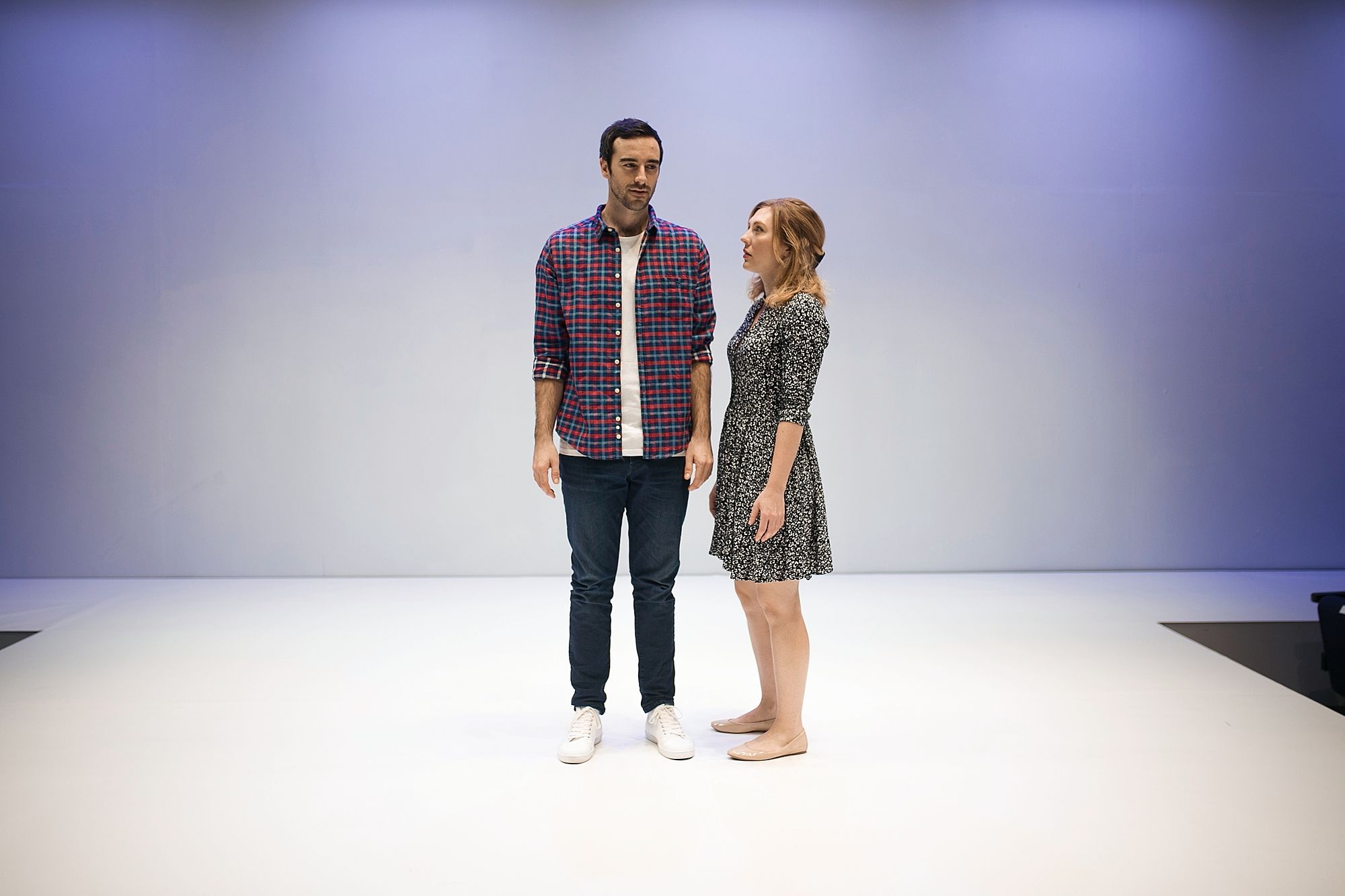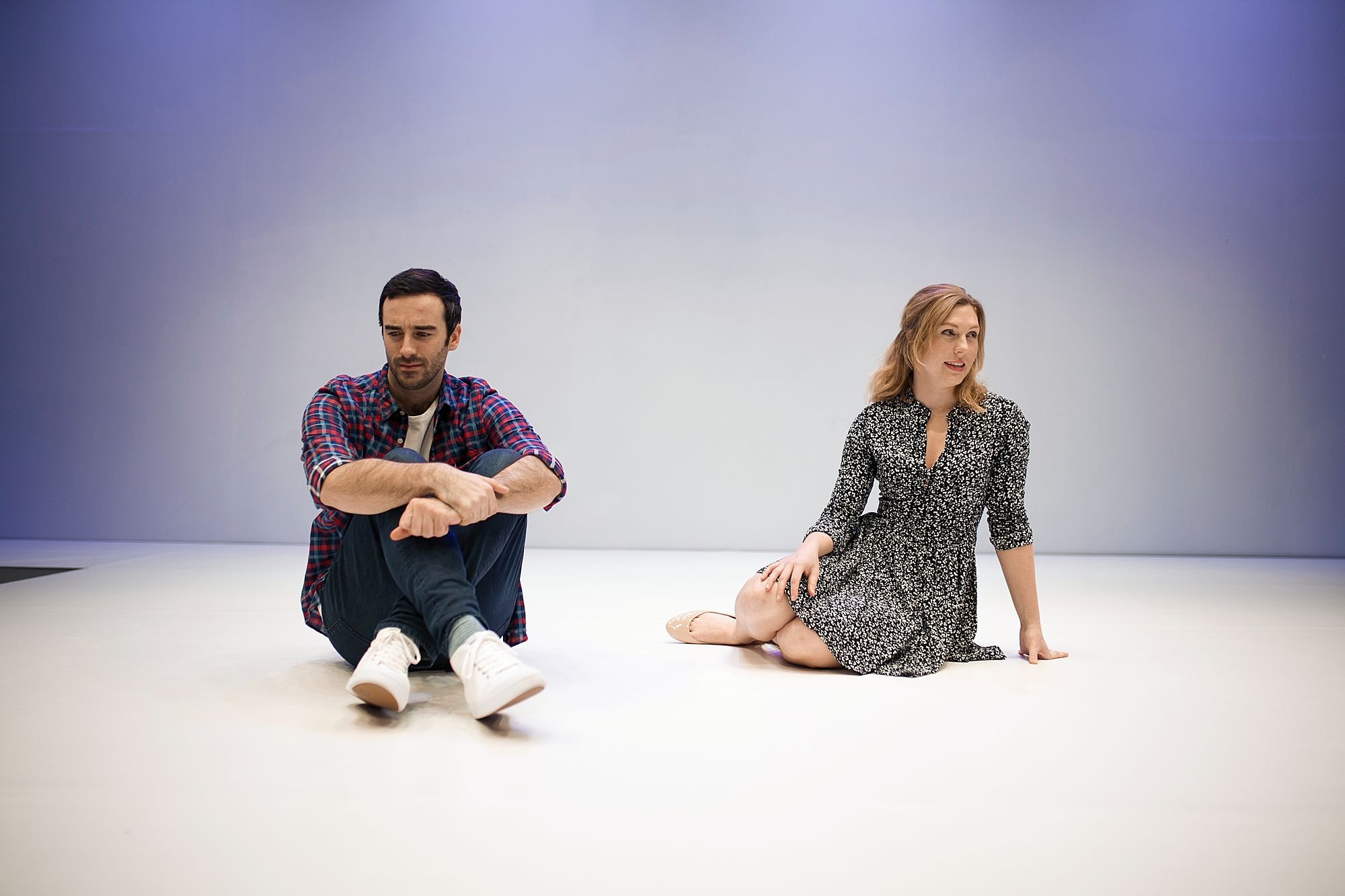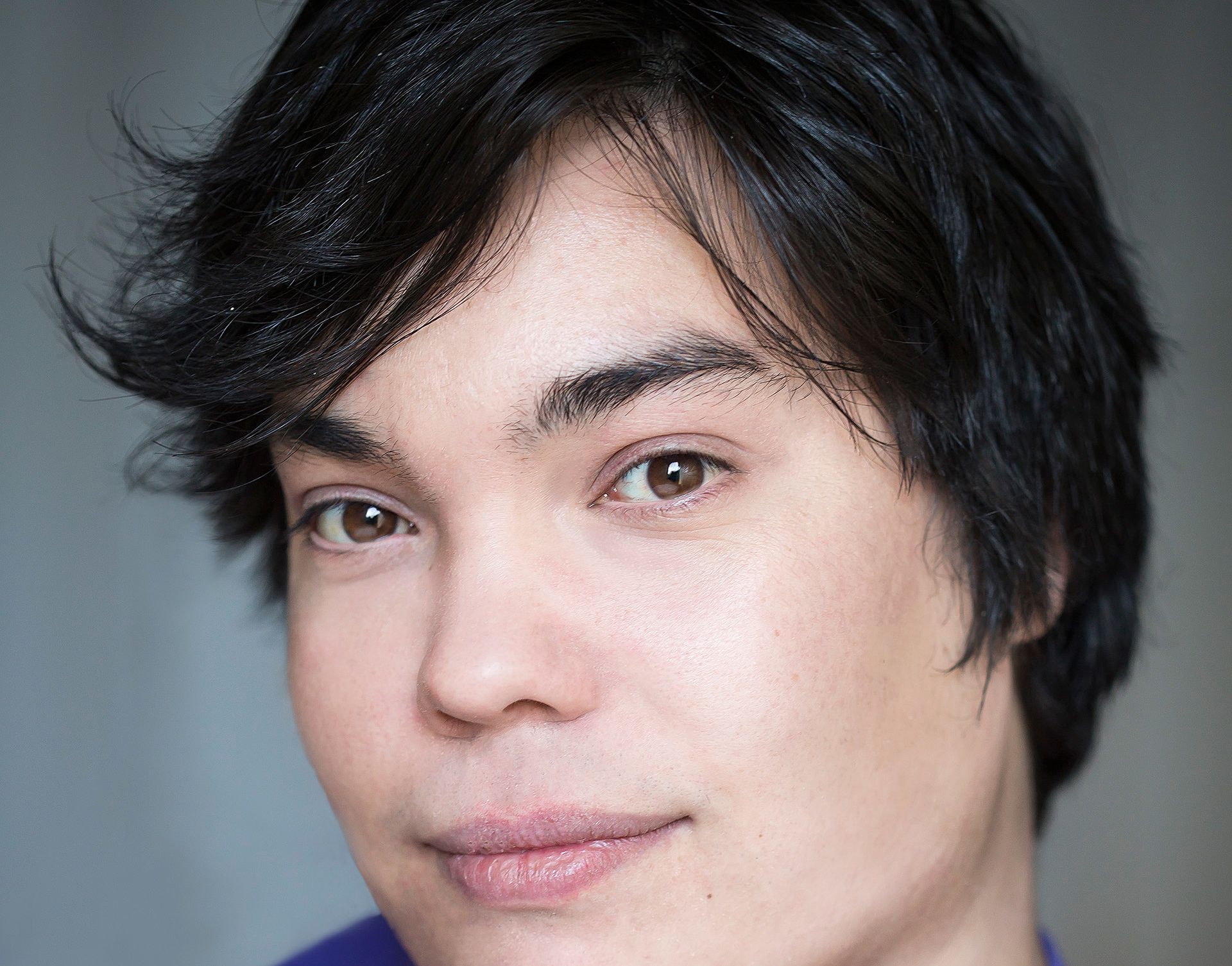Stripped Back: A Review of Cock
Sam Brooks reviews Cock, a co-presentation between Silo Theatre and Auckland Live.
Sam Brooks reviews Cock, a co-presentation between Silo Theatre and Auckland Live.
The audience is raked towards the actors.
There is no scenery, no props, no furniture and no mime.
Instead the focus is entirely on the drama of the scene.
Those are playwright Mike Bartlett’s instructions for how Cock must be performed. When I first read it, it made it shudder. It’s the kind of pretentious list of instructions you’d expect before a play that takes itself incredibly seriously, one without the ideas to carry the weight of these instructions.
Cock is not that play. On the page it’s a play that is full to the brim of ideas, and any production needs to be stripped back of design, of excess, to let these ideas truly shine through. Ostensibly a comedy of manners - but also a deconstruction of that genre - Cock revolves around John, who is in a relationship with a man (M, played by Matt Minto), but has cheated on him with a woman (W, played by Matilda Ridgway). Put simply, throughout the play John is trying to reconcile not only his betrayal but his crisis of sexual identity and how that is perceived by others and himself. This is told through a series of scenes that appear to start and finish at random, but it slowly becomes clear that there’s a pattern here: each scene brackets various arguments between John and either M or W.
As written, and as spoken, the conversations mimic the rhythm of real-life fights between loved ones down to our seemingly random stops and stutters. Mike Bartlett’s plays can sometimes come off misanthropic (see: Earthquakes in London, 13) but in Cock he shows he has a keen ear for not only the ways people insult and defend, but also constantly assess and reassess in conversations. It’s naturalism at its most authentic and honestly reflective. Often naturalistic dialogue has a tendency to reflect what people can sound like at their most refined and beautiful, where conversations flow and move along nicely and conveniently for the drama, but what Bartlett does in Cock is reflect what people sound like at their most raw and uncollected; it’s painful to watch, and beautiful.
Shane Bosher’s direction brings in the theatricality, necessarily so. These three characters talking, interacting and moving as ‘real people do’ would get incredibly dull incredibly quickly. Bosher brings a fluid movement language to the piece, and a blocking that, incredibly, seems entirely intuitive. Nowhere is this more evident than in a sex scene towards the middle of the play, cleverly interpreted as circular movements with John moving around his partner. It reflects the emotional reality without being literal about it, and it gives the moment the stakes that it needs. There’s a tautness and a tight choreography to these moments, and they balance between giving the audience beautiful things to look at, and reflecting the relationships between these characters in the most literal ways; intimate moments are played with the actors close to each other, distant moments are with the actors far away from each other. Incredibly, Bosher and his cast manage this choreography in a way that feels completely organic and never didactic.
A show like Cock greatly relies on the quality of the performances. Small moments are enlarged, the actors’ offers become so much more important, and the stakes feel much higher. As Bartlett demands in his instructions, the drama is the only thing we have to focus on, so every beat feels that much more important. It feels like we’re in a boxing ring, albeit the most bougie, stately boxing ring you’ve ever seen. The entire set is white; the performers on a raised set and surrounded by audience on three sides. It’s claustrophobic as hell for people watching, and the production lends itself to some beautifully voyeuristic people-watching; it’s like we’re being encouraged to see who is laughing at what, who is gasping at what, who is reacting to us. It keeps us in a constant conversation with the work, reassessing not only what John is doing and why he’s doing it, but our own reactions to it.
On the surface, Cock may seem to be a play about sexuality, but reveals itself to be a play about the ways in which we hurt each other and ourselves in relationships.
As M, Matt Minto takes on what could potentially be a minefield of a role; the character is the loudest of all three, and the most outwardly savage, but Minto grounds M in a core insecurity, and reveals that insecurity over the eighty minutes beautifully. Similarly, as W, Matilda Ridgway is the interloper into the established relationship and has an uphill battle, but Ridgway has an innate charisma that is compelling to watch, and when the character finally, justifiably boils over into anger it is one of the biggest, most externalised and loudest moments in the play, and it’s utterly electric.
Which leaves us with Duncan Ragg, who plays John. It’s one of the most impressive performances I’ve seen in recent memory; John is a twitchy character, one who is being torn apart by his indecision and actions, and Ragg externalises all this for us to see. It’s a Big Performance, there’s not a single thought or a single action that Ragg lets go by. Despite the character’s scatteredness, there’s a focus to Ragg’s performance that is absolutely essential; John is a character who can be easy to hate, he seemingly hurts people he loves without a care, but Ragg makes sure that we always understand John is hurting himself most of all. The play is a complex beast by itself, and John a complex character, but Ragg goes the extra mile to give us a John who is not just the unlikeable, indecisive, simpering creature on the page, but also to give us the parts of John that M and W love. It’s a towering performance, and the production’s crowning achievement.
On the surface, Cock may seem to be a play about sexuality, but reveals itself to be a play about the ways in which we hurt each other and ourselves in relationships. Sexuality is just one of the weapons that these characters use to get one over on each other, like class, like age, like identity. John’s main conflict, about not knowing who he is, is externalised with his relationships with M and W, and drawn out slowly until an ultimatum is given. John has to make a decision, even though he doesn’t particularly want to or feel capable of it.
The play drives towards this moment with such a force that the final moments of the show can feel like a cheat, but in a way that feels completely conscious and intentional. As John cheats out of the decision he has to make by not answering, the production cheats out of the playwright-enforced minimalism. The lighting fades, almost imperceptibly slowly, as John refuses to give an answer to a seemingly small question that in fact means everything. The production’s final image is its most potent; a lonely isolated John who is seemingly incapable of doing, or even knowing, anything. It’s an image which, tragically, shows the logical and inevitable result of everything Cock is about: the ways we hurt, lie to, compromise and cheat other people in relationships, and how by doing that we hurt, lie to, compromise and cheat ourselves.
Cock ran from 20 July – 12 August 2017 at the Herald Theatre.
